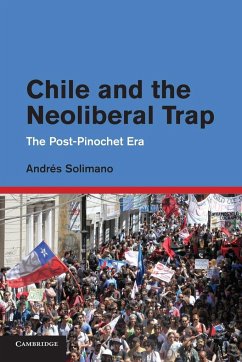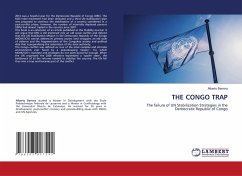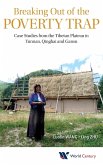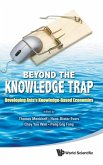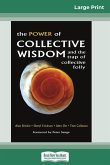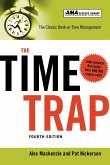- Broschiertes Buch
- Merkliste
- Auf die Merkliste
- Bewerten Bewerten
- Teilen
- Produkt teilen
- Produkterinnerung
- Produkterinnerung
This book analyzes Chile's political economy and its attempt to build a market society in a highly inegalitarian country.
Andere Kunden interessierten sich auch für
![THE CONGO TRAP THE CONGO TRAP]() Alberto BarreraTHE CONGO TRAP39,99 €
Alberto BarreraTHE CONGO TRAP39,99 €![Breaking The Cravings Trap Breaking The Cravings Trap]() Frank AlbertBreaking The Cravings Trap11,99 €
Frank AlbertBreaking The Cravings Trap11,99 €![BREAKING OUT OF THE POVERTY TRAP BREAKING OUT OF THE POVERTY TRAP]() Ling Zhu & Luolin WangBREAKING OUT OF THE POVERTY TRAP109,99 €
Ling Zhu & Luolin WangBREAKING OUT OF THE POVERTY TRAP109,99 €![BEYOND THE KNOWLEDGE TRAP BEYOND THE KNOWLEDGE TRAP]() Hans-Dieter Evers Et Al Thomas MenkhoffBEYOND THE KNOWLEDGE TRAP175,99 €
Hans-Dieter Evers Et Al Thomas MenkhoffBEYOND THE KNOWLEDGE TRAP175,99 €![The Debt Trap The Debt Trap]() Sebastien CanderleThe Debt Trap52,99 €
Sebastien CanderleThe Debt Trap52,99 €![The Power of Collective Wisdom and the Trap of Collective Folly (16pt Large Print Edition) The Power of Collective Wisdom and the Trap of Collective Folly (16pt Large Print Edition)]() Alan BriskinThe Power of Collective Wisdom and the Trap of Collective Folly (16pt Large Print Edition)25,99 €
Alan BriskinThe Power of Collective Wisdom and the Trap of Collective Folly (16pt Large Print Edition)25,99 €![The Time Trap The Time Trap]() Alec MackenzieThe Time Trap22,99 €
Alec MackenzieThe Time Trap22,99 €-
-
-
This book analyzes Chile's political economy and its attempt to build a market society in a highly inegalitarian country.
Hinweis: Dieser Artikel kann nur an eine deutsche Lieferadresse ausgeliefert werden.
Hinweis: Dieser Artikel kann nur an eine deutsche Lieferadresse ausgeliefert werden.
Produktdetails
- Produktdetails
- Verlag: Cambridge University Press
- Seitenzahl: 182
- Erscheinungstermin: 6. Januar 2014
- Englisch
- Abmessung: 229mm x 152mm x 10mm
- Gewicht: 273g
- ISBN-13: 9781107415515
- ISBN-10: 1107415519
- Artikelnr.: 41239722
- Herstellerkennzeichnung
- Books on Demand GmbH
- In de Tarpen 42
- 22848 Norderstedt
- info@bod.de
- 040 53433511
- Verlag: Cambridge University Press
- Seitenzahl: 182
- Erscheinungstermin: 6. Januar 2014
- Englisch
- Abmessung: 229mm x 152mm x 10mm
- Gewicht: 273g
- ISBN-13: 9781107415515
- ISBN-10: 1107415519
- Artikelnr.: 41239722
- Herstellerkennzeichnung
- Books on Demand GmbH
- In de Tarpen 42
- 22848 Norderstedt
- info@bod.de
- 040 53433511
Andrés Solimano is founder and Chairman of the International Center for Globalization and Development. He holds a Ph.D. in Economics from the Massachusetts Institute of Technology. Dr Solimano was a Regional Advisor at the United Nations Economic Commission for Latin America and the Caribbean, Country Director at the World Bank and Executive Director at the Inter-American Development Bank. He was also Director of the project on International Mobility of Talent with the United Nations University-World Institute of Economic Research and served as Executive Director for Chile at the Board of the Inter-American Development Bank. Dr Solimano has written extensively on international migration, talent mobility, growth, inequality, political economy, macroeconomics and international development. His latest book is International Migration in the Age of Crisis and Globalization (Cambridge University Press, 2010).
1. From its past and present, Chile is poised to provide a better future
for its people; 2. A brief history: the role of authoritarian conditions
and crises in shaping political and economic orders in Chile; 3. Cementing
Neoliberalism: a cultural revolution for the free market; 4.
Economic-growth and macroeconomic performance in the 1990s and 2000s under
four concertación governments; 5. The social record of the post-Pinochet
administrations: poverty declines but high inequality persists; 6. The
social policies of the 1990s and 2000s: Neoliberalism tempered with social
protection?; 7. Concentration of economic power: the new elites of the
super-rich, oligopolistic markets and dual productive structures; 8. Limits
to Chilean democracy and the governance for capital; 9. Summary and issues
for the future.
for its people; 2. A brief history: the role of authoritarian conditions
and crises in shaping political and economic orders in Chile; 3. Cementing
Neoliberalism: a cultural revolution for the free market; 4.
Economic-growth and macroeconomic performance in the 1990s and 2000s under
four concertación governments; 5. The social record of the post-Pinochet
administrations: poverty declines but high inequality persists; 6. The
social policies of the 1990s and 2000s: Neoliberalism tempered with social
protection?; 7. Concentration of economic power: the new elites of the
super-rich, oligopolistic markets and dual productive structures; 8. Limits
to Chilean democracy and the governance for capital; 9. Summary and issues
for the future.
1. From its past and present, Chile is poised to provide a better future
for its people; 2. A brief history: the role of authoritarian conditions
and crises in shaping political and economic orders in Chile; 3. Cementing
Neoliberalism: a cultural revolution for the free market; 4.
Economic-growth and macroeconomic performance in the 1990s and 2000s under
four concertación governments; 5. The social record of the post-Pinochet
administrations: poverty declines but high inequality persists; 6. The
social policies of the 1990s and 2000s: Neoliberalism tempered with social
protection?; 7. Concentration of economic power: the new elites of the
super-rich, oligopolistic markets and dual productive structures; 8. Limits
to Chilean democracy and the governance for capital; 9. Summary and issues
for the future.
for its people; 2. A brief history: the role of authoritarian conditions
and crises in shaping political and economic orders in Chile; 3. Cementing
Neoliberalism: a cultural revolution for the free market; 4.
Economic-growth and macroeconomic performance in the 1990s and 2000s under
four concertación governments; 5. The social record of the post-Pinochet
administrations: poverty declines but high inequality persists; 6. The
social policies of the 1990s and 2000s: Neoliberalism tempered with social
protection?; 7. Concentration of economic power: the new elites of the
super-rich, oligopolistic markets and dual productive structures; 8. Limits
to Chilean democracy and the governance for capital; 9. Summary and issues
for the future.

